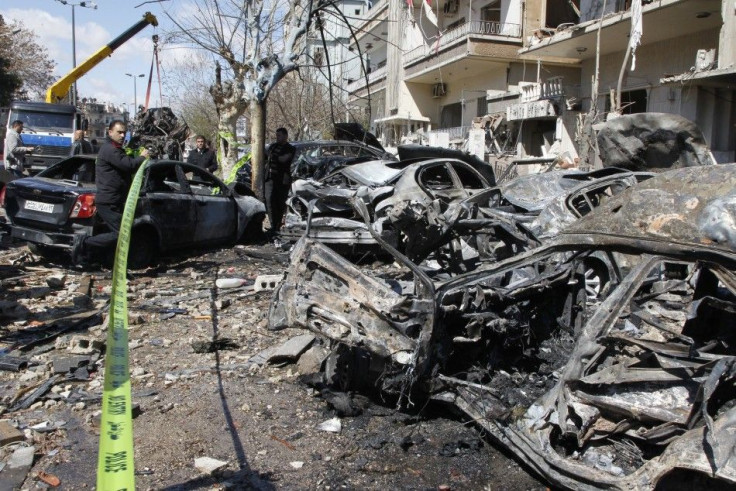Damascus Bombings Kill 27, Syrian State Television Reports

Two deadly explosions, purportedly carried out by rebels fighting President Bashar al-Assad, hit Damascus, Syria, on Saturday, killing at least 27 people, Syrian state television reports.
Numerous burned cars remained in front of an intelligence center in a security compound targeted by one of the explosions, Reuters reported, quoting the Syrian state-run television service.
The second bomb targeted a police building, with Syrian television showing footage of the remains of a destroyed car with a charred corpse inside.
No one has claimed responsibility for the explosions, which appear similar to previous suicide bombings that hit Damascus and Aleppo in the last three months.
The blasts closely followed the first anniversary of the Syrian revolution. According to the U.N. estimate, more than 8,000 people have been killed and about 230,000 were forced to flee the country ever since the violent revolution began.
The car bomb attack occurred on the day a joint-mission by the Syrian government, the U.N. and the Organizations of Islamic Cooperation was due to start assessing humanitarian needs in Syrian towns.
Amnesty International, in a new report released Thursday, alleged that the government's scale of torture and other ill-treatment had risen to a level not witnessed for years and was reminiscent of the dark era of the 1970s and 1980s.
The document, titled I Wanted to Die: Syria's Torture Survivors Speak Out, said the torture and ill-treatment of insurgents generally followed a set pattern of dehumanizing treatments.
The experience for the many people caught up in the massive wave of arrests over the last year is now very similar to that of detainees under former President Hafez al-Assad - a nightmarish world of systemic torture, said Ann Harrison, Amnesty Middle East and North Africa expert.
The testimonies we have heard give disturbing insights into a system of detention and interrogation which, a year after protests began, appears intended primarily to degrade, humiliate and terrify its victims into silence.
© Copyright IBTimes 2024. All rights reserved.












